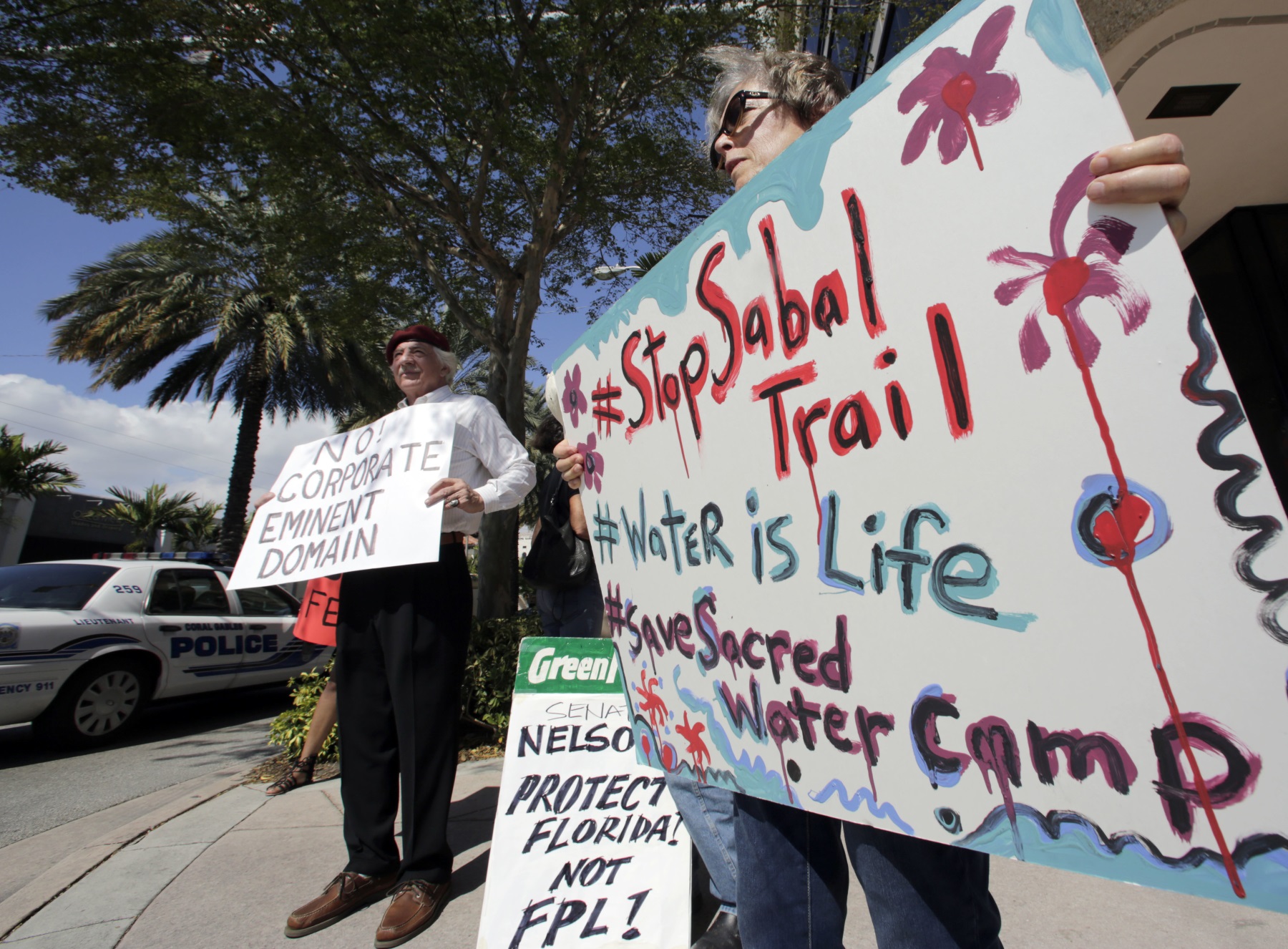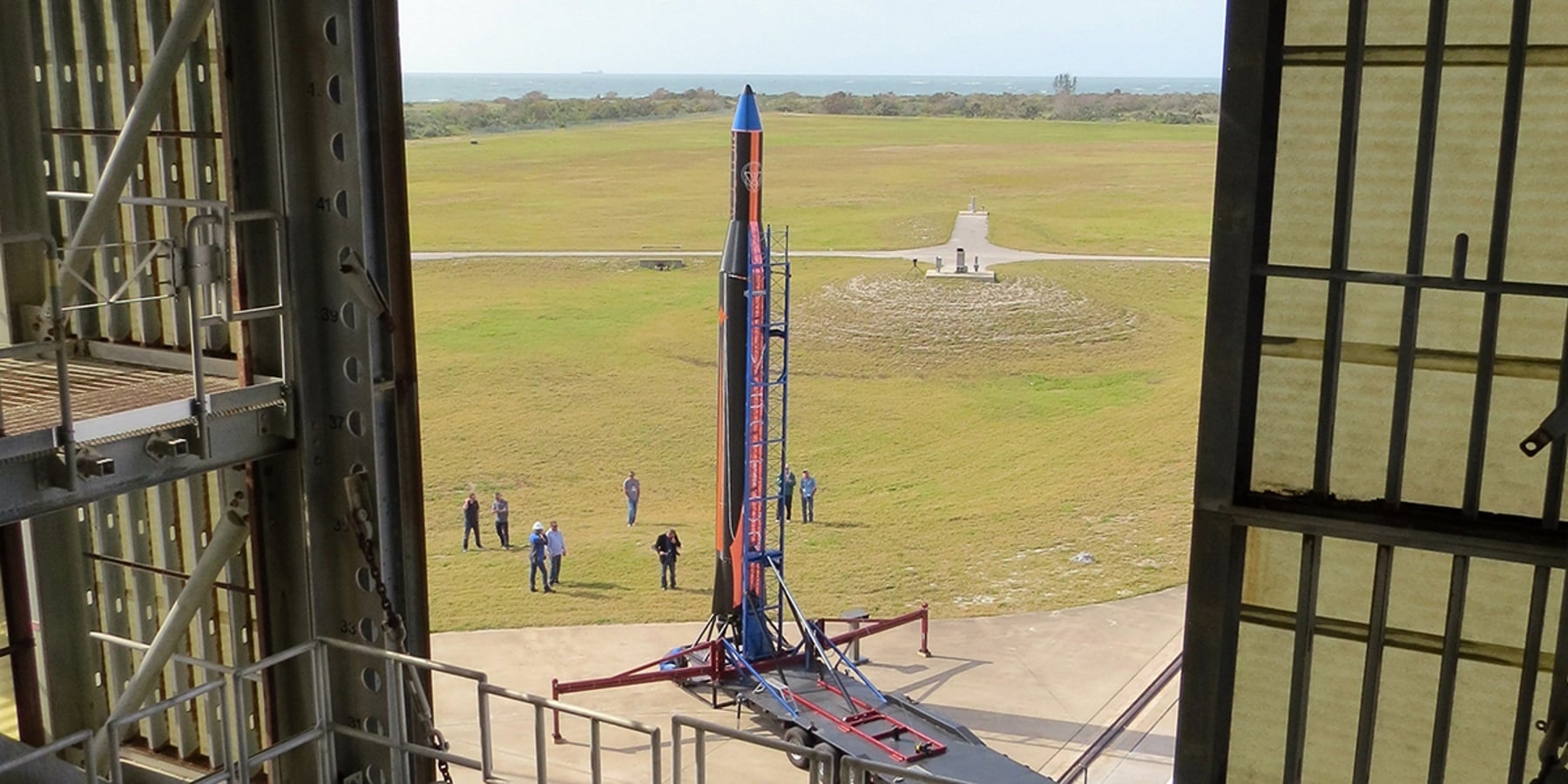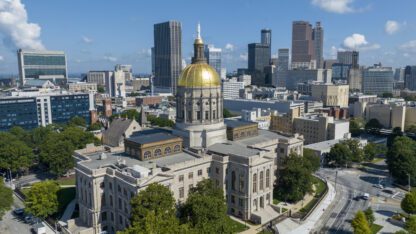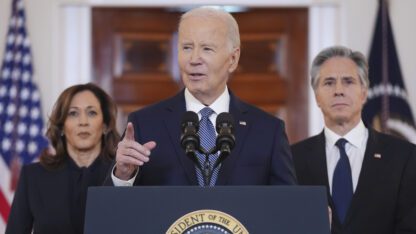A controversial natural gas pipeline that cuts through South Georgia could be shut down Wednesday.
The question of whether federal regulators appropriately considered climate change when giving the project the go-ahead has led to a showdown between those regulators – the Federal Energy Regulatory Commission (FERC) – and the D.C. Circuit Court.
Like us on Facebook
Environmental groups, local politicians and property owners in and around Albany, Georgia, have fought the Sabal Trail project for years with concerns about eminent domain, pollution and climate change.
Last year, the court sided with the Sierra Club on one of those issues. It said that when FERC studied the environmental impacts of the project, it didn’t adequately consider how the pipeline will contribute to climate change.
“All the natural gas that will travel through these pipelines will be going somewhere: specifically, to power plants in Florida,” the court wrote. “We conclude that at a minimum, FERC should have estimated the amount of power-plant carbon emissions that the pipelines will make possible.”
FERC appealed that decision. Last week, the court said it wouldn’t reconsider it.
“This is the first time that a court has sent such a strong message,” said Kelly Martin, director of the Sierra Club’s Beyond Dirty Fuels campaign.
The court could shut down the pipeline, but FERC is working to keep it going.
On Monday, FERC released a supplemental environmental impact statement – an addition to its earlier review – that looks at climate change. In that report, it said that burning the natural gas could potentially increase Florida’s greenhouse gas emissions, but it doesn’t change the commission’s earlier decision to approve the pipeline. And it added that it can’t say if not using the pipeline, or taking some other approach, might not also lead to increased emissions in Florida.
FERC might release a new certificate to keep pipeline operations going, and the companies that own the Sabal Trail pipeline have asked for that. But that could set up a whole new fight, Martin said, over the timing of the certificate and whether FERC’s climate analysis is sufficient.
On Tuesday, FERC asked the court to wait 45 days before making its decision not to reconsider the case official, saying if the court finalizes its order and the pipeline is shut down, it would “endanger” Florida’s natural gas supply.
“If pipeline service is halted, Florida Power & Light may not be able to meet its customers’ electricity needs efficiently or reliably,” FERC wrote. “This is particularly problematic now, as demand for natural gas in Florida could outstrip supply this winter.”
State Rep. Debbie Buckner, a Democrat from Junction City in southwest Georgia, sent a comment to FERC against the pipeline on Monday.
“I strongly oppose the granting of another certificate of any kind for Sabal Trail Transmission,” she wrote.
A different pipeline project was shelved in 2016 in Georgia. The Palmetto Pipeline would have carried gasoline down the coast.
The state of Georgia denied that company’s request to use eminent domain to build the pipeline and later passed a moratorium on all petroleum pipeline construction in the state.









